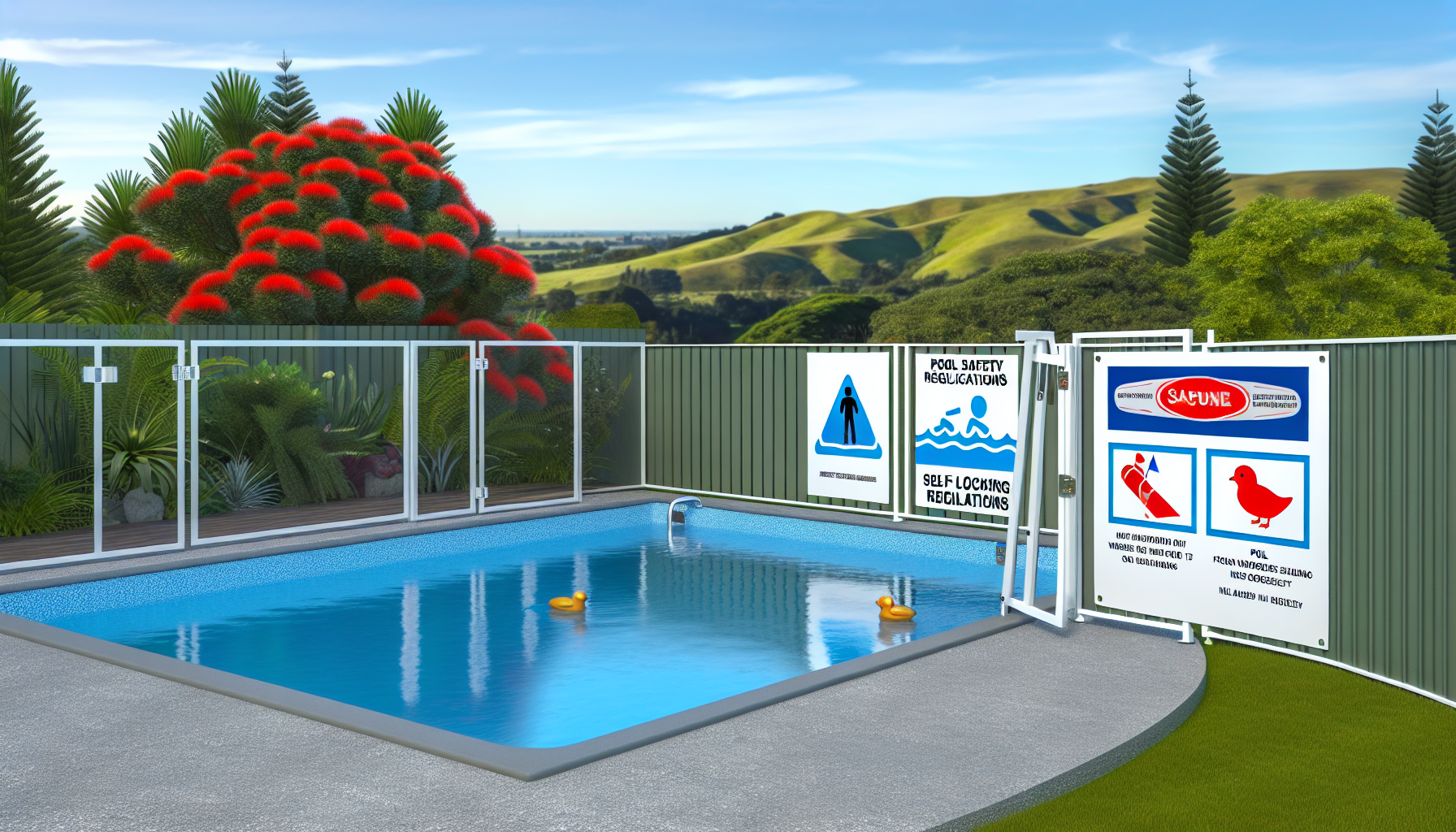Understanding Pool Safety Rules in New Zealand
Got a pool? Then you need to know the rules—because New Zealand takes pool safety seriously. Drowning is a real risk, and the government has regulations to prevent accidents, especially for young children. If you’re thinking about getting a pool or already have one, here’s what you need to know to stay on the right side of the law.
The Basics of NZ Pool Safety
If your pool can hold more than 40cm of water, it’s covered by the regulations. That includes in-ground pools, above-ground pools, spa pools, and even some inflatable ones. These rules exist to stop kids from wandering in and getting into trouble.
The main things to focus on are:
✔ Fencing – Pools must be enclosed with a compliant pool barrier.
✔ Gates – Must be self-closing and self-latching.
✔ Compliance Checks – Inspections happen every three years.
Fail to meet these requirements? You could get fined, and worse—your pool might be considered unsafe.
Pool Fencing: What the Law Says
This is probably the biggest thing to get right. The law requires that pools must be fully enclosed with a compliant pool barrier that:
- Is at least 1.2 metres high (so kids can’t just climb over).
- Has no gaps larger than 100mm (so little ones can’t squeeze through).
- Has a self-closing, self-latching gate that opens away from the pool.
If you have a spa pool or hot tub, you might not need full fencing—but you do need a proper lockable cover that fits securely.
For more details, check out Building Performance NZ – they explain the exact rules clearly.
Regular Pool Inspections
Councils check pools every three years to make sure everything’s still up to standard. If you own a pool, it’s your responsibility to organise these safety checks. Your local council will usually remind you when it’s time, but don’t wait—non-compliance can mean fines of up to $5,000.
For specific guidelines in your region, visit your local council’s website. Here are a few examples:
- Auckland Council for pool safety rules in Auckland.
- Wellington City Council if you’re in the capital.
- Christchurch City Council for South Island pool owners.
Portable and Inflatable Pools—Yes, They Count
Think small, temporary pools don’t need to follow the rules? Think again. If your inflatable or portable pool can hold more than 40cm of water, the fencing laws still apply.
So, before you set up that portable pool this summer, check the water depth. If it’s over the limit, you need a proper barrier—otherwise, you could be breaking the law.
Where to Get Pool Fencing and Covers
If you need pool fencing or a compliant spa pool cover, several NZ retailers can help. Here are a few good places to start:
🔹 Bunnings NZ – Stock a range of pool fencing solutions.
🔹 Mitre 10 – Another good option for fencing materials.
🔹 Para Rubber – Great for pool covers and accessories.
If you want professional installation, check out local fencing companies, as they often have experience meeting NZ pool fencing requirements.
What Happens If You Don’t Follow the Rules?
Simple—fines and possible legal action. Councils have the authority to inspect pools, and if they find your pool non-compliant, they can issue instant fines or even take steps to restrict pool access. The biggest risk isn’t the fine though—it’s the safety of children around your pool.
Final Thoughts
If you have a pool, fencing and regular checks aren’t optional—they’re required by law. The easiest way to stay compliant? Do regular checks yourself. Make sure your fencing is solid, gates self-close, and that any covers fit properly.
Not sure if your pool meets the rules? Contact your local council before they come knocking—it’s way better than dealing with a fine later.


Leave a Reply